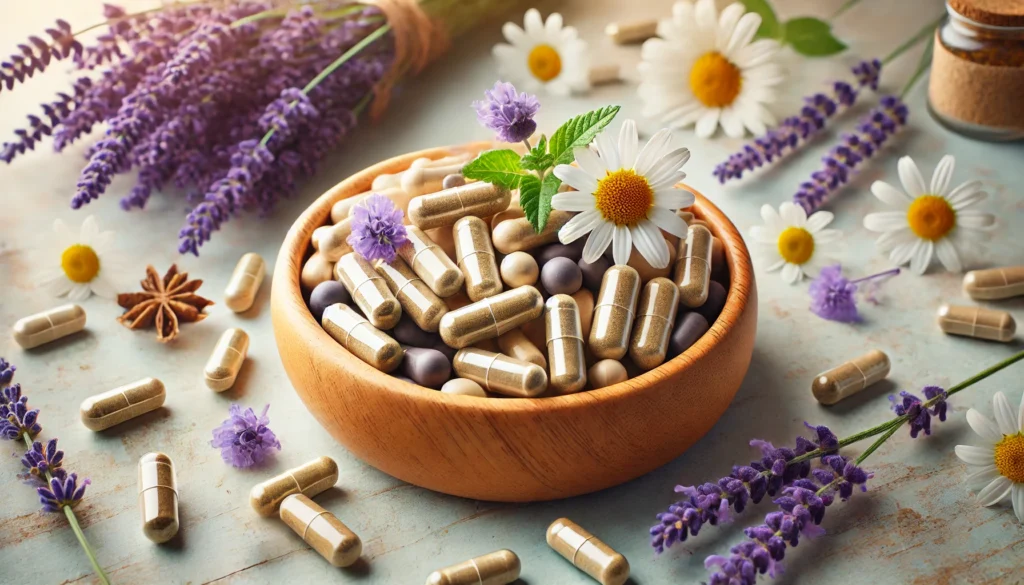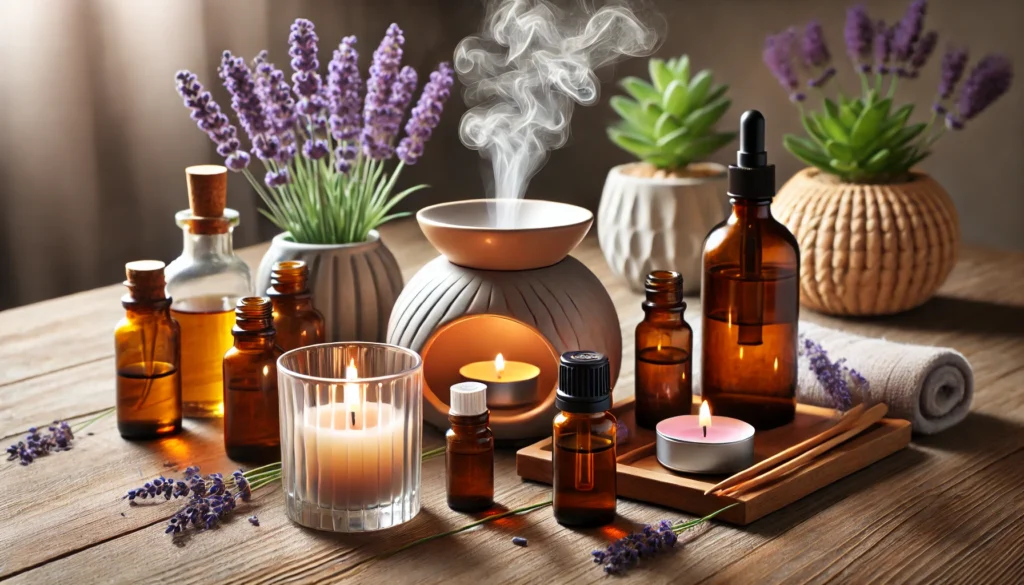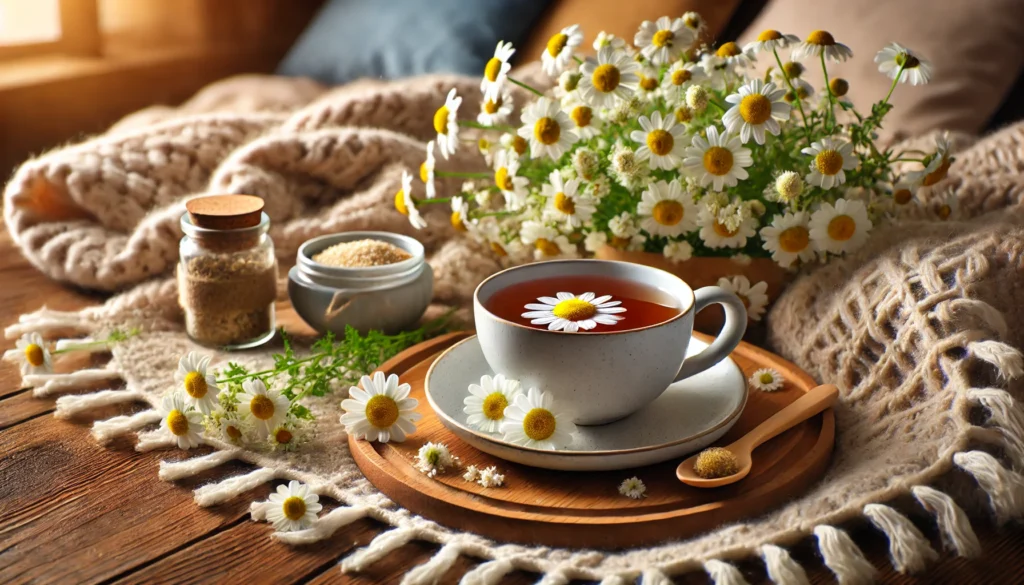Anxiety is a common mental health issue. It affects millions of people worldwide.
Traditional treatments often include medication and psychotherapy. However, these methods may not work for everyone. Some people may experience side effects or find little relief from their symptoms.
This has led many to seek alternative therapies for anxiety. These non-traditional methods aim to provide relief from anxiety symptoms. They often focus on holistic well-being, addressing both the mind and body.
Alternative medicine for anxiety encompasses a wide range of practices. These include mindfulness, acupuncture, yoga, herbal remedies, and more. Each therapy offers a unique approach to managing anxiety.
The growing interest in these therapies reflects a broader trend. More and more people are exploring ways to optimize their mental health. They are seeking out methods that align with their personal beliefs and lifestyle.
This article delves into the world of alternative therapies for anxiety. It provides a comprehensive overview of various methods. It also offers practical advice for those interested in exploring these options.
Whether you’re a health and wellness coach, a science journalist, or a biohacker, this article aims to be a valuable resource. It offers detailed, accessible information on alternative therapies for anxiety relief.
You may also like: Top Supplements to Alleviate Anxiety Naturally

Understanding Anxiety and Its Impact
Anxiety is a natural human response. It’s the body’s reaction to stress or perceived threats. However, when anxiety becomes chronic, it can disrupt daily life.
Anxiety disorders are among the most common mental health conditions globally. They affect millions of individuals across various demographics. People experience anxiety in diverse ways, ranging from mild unease to debilitating panic.
The symptoms of anxiety can manifest both physically and emotionally. Common emotional signs include excessive worry, restlessness, and difficulty concentrating. Physical symptoms often involve fatigue, a racing heart, and muscle tension.
Anxiety significantly impacts overall well-being. It can influence a person’s personal and professional life, relationships, and general health. Prolonged anxiety may lead to further mental and physical health issues.
- Excessive worrying
- Restlessness or feeling on edge
- Difficulty concentrating
- Irritability
- Muscle tension
Understanding the intricacies of anxiety is crucial. It paves the way for effective management and intervention. Recognizing its impact can motivate individuals to seek appropriate treatment, whether traditional or alternative.
Ultimately, addressing anxiety involves a comprehensive approach. This includes lifestyle changes, therapy, and possibly medication. For some, exploring alternative therapies can be an effective component of their treatment plan. This holistic perspective considers the varied manifestations and impacts of anxiety, helping to tailor interventions to individual needs.
The Limitations of Conventional Treatments
Conventional treatments for anxiety often involve medication and psychotherapy. While effective, they have certain limitations. Not all patients respond well to these traditional methods.
Pharmaceutical options, like SSRIs and benzodiazepines, can lead to side effects. These might include drowsiness, dependency, or withdrawal symptoms. This can deter individuals from continuing medication-based treatment.
Psychotherapy, though beneficial, requires time and commitment. Some people may not have access due to cost or availability. Others may not find traditional therapy aligns with their personal beliefs or preferences.
In some cases, conventional treatments may not address the root cause of anxiety. They might focus more on symptom management rather than holistic healing. As a result, individuals may seek alternative approaches to find comprehensive relief. This exploration can provide complementary solutions, leading to well-rounded care and support.
What is Alternative Medicine?
Alternative medicine includes a variety of practices not part of mainstream medical care. It draws on diverse disciplines, offering different healing philosophies. These treatments often emphasize holistic well-being.
Unlike conventional therapies, alternative treatments focus on the whole person. This approach considers physical, mental, and emotional health. The goal is to address the root causes of issues, not just symptoms.
Some alternative practices have roots in ancient healing traditions. Methods like Ayurveda and acupuncture have been used for centuries. Their growing popularity is driven by a desire for natural, less invasive options. As interest rises, many individuals explore these therapies for anxiety relief and overall wellness.
Historical Context of Alternative Therapies
Alternative therapies have a rich and varied history, with roots in diverse cultures. Practices like herbal medicine, acupuncture, and yoga date back thousands of years. Each has been shaped by its unique cultural context.
In ancient China, acupuncture emerged as a key component of Traditional Chinese Medicine. It was believed to balance the body’s energy, known as “Qi.” Meanwhile, Ayurveda, originating in India, emphasized harmony between the body, mind, and spirit through diet and herbal treatments.
Throughout history, alternative therapies evolved alongside conventional medicine. They often served as primary healthcare solutions before the rise of modern science. Today, their integration with standard treatments reflects a growing recognition of their value in holistic health. As interest in natural and holistic wellness rises, these age-old practices offer valuable insights into maintaining and restoring mental well-being.

Popular Alternative Therapies for Anxiety Relief
Alternative therapies offer various approaches to managing anxiety. These non-traditional methods can complement conventional treatments.
Mindfulness and meditation have gained popularity for their calming effects. Such practices encourage presence and awareness, reducing anxiety.
Acupuncture, a staple of Traditional Chinese Medicine, involves inserting fine needles into specific points. Many find it reduces anxiety symptoms.
Yoga combines physical postures, breathing, and meditation. Different styles, like Hatha and Kundalini, cater to various preferences and anxiety relief.
Herbal remedies, such as valerian root and chamomile, offer natural calming effects. They have been used for centuries for their tranquilizing properties.
Aromatherapy utilizes essential oils like lavender to promote relaxation. These scents can soothe and calm the anxious mind.
Massage therapy targets tension stored in muscles. Regular sessions can enhance relaxation and reduce stress levels.
These therapies provide a holistic approach to anxiety management:
- Mindfulness and Meditation
- Acupuncture
- Yoga
- Herbal Remedies
- Aromatherapy
- Massage Therapy
Mindfulness and Meditation
Mindfulness and meditation practices focus on being present. They help reduce anxiety by cultivating awareness and acceptance.
Mindfulness encourages individuals to observe thoughts without judgment. This can prevent anxiety from escalating.
Meditation techniques, such as deep breathing and visualization, promote mental calmness. Regular practice can enhance emotional regulation.
Acupuncture
Acupuncture has been used for millennia to address various ailments. Its roots lie in balancing the body’s vital energy, or Qi.
By targeting specific points, acupuncture may alleviate anxiety symptoms. The release of endorphins is believed to facilitate this process.
Research indicates acupuncture has potential benefits for anxiety. While results vary, many individuals report feeling more relaxed post-treatment.
Yoga and Its Styles
Yoga intertwines physical, mental, and spiritual practices. It offers a variety of styles that suit different needs.
Hatha yoga focuses on postures and breath control. It is often recommended for beginners seeking stress relief.
Meanwhile, Kundalini yoga combines chanting and dynamic movements. It aims to balance energy, promoting mental well-being.
Herbal Remedies
Herbal remedies have a long-standing history in anxiety management. They offer natural alternatives to pharmaceuticals.
Valerian root and chamomile are renowned for their calming effects. They’re often consumed as teas or supplements.
Herbal remedies should be used with care. Consulting a healthcare provider is wise to prevent potential interactions with medications.
Aromatherapy with Essential Oils
Aromatherapy involves the use of essential oils to promote relaxation. Oils such as lavender and bergamot are popular for anxiety relief.
These oils can be inhaled or applied topically. Their calming scents soothe the mind and encourage relaxation.
Consistency is key in aromatherapy practices. Using oils as part of a daily routine can enhance their effectiveness in reducing anxiety.
Massage Therapy
Massage therapy is a well-known technique for easing muscle tension. It plays a significant role in anxiety management.
Regular sessions can improve overall relaxation, lowering stress levels. The touch therapy involved also promotes emotional well-being.
By targeting specific areas, massage can help release physical and emotional tension. It supports a holistic approach to managing anxiety.
Emerging Trends in Alternative Anxiety Therapies
Alternative therapies continuously evolve, offering fresh approaches to anxiety relief. Recent trends incorporate cutting-edge science and ancient wisdom.
Biofeedback and neurofeedback techniques emerge as promising options. These methods leverage technology to enhance awareness and control over physiological responses.
Adaptogens are gaining attention for their stress-resistance properties. Known for their ability to restore balance, these herbs aid in managing anxiety symptoms.
Nootropics are another growing trend. They cater to those seeking cognitive boosts alongside anxiety reduction. These compounds hold potential for mental and emotional enhancement.
Technology plays an evolving role in anxiety therapies. Innovations such as mobile apps and virtual reality are increasingly utilized for stress reduction.
Emerging trends include:
- Biofeedback and Neurofeedback
- Adaptogens
- Nootropics
- Technology in Therapy
Biofeedback and Neurofeedback
Biofeedback and neurofeedback tap into the body’s natural signals. They teach individuals to control physiological functions like heart rate and brain waves.
Through real-time feedback, these methods promote self-awareness. Users learn to modulate their responses, leading to reduced anxiety.
The techniques offer a personalized approach to anxiety management. Patients often feel more empowered, leading to lasting improvements.
Adaptogens and Their Role in Stress Resistance
Adaptogens are natural substances that help combat stress. Herbs like ashwagandha and rhodiola enhance the body’s resilience.
By balancing stress hormones and calming the nervous system, adaptogens support anxiety relief. Their holistic nature appeals to those seeking natural solutions.
Regular use can optimize body response to stressors. This can lead to improved mental and physical health.
Nootropics for Cognitive Enhancement
Nootropics, or “smart drugs,” are known for boosting brain function. They promise benefits for memory, focus, and anxiety.
While still subject to ongoing research, certain nootropics display potential in mood regulation. This may create a positive impact on anxiety levels.
Individuals seeking to enhance cognitive performance often explore these substances. Balanced use can aid both mental acuity and emotional stability.
The Role of Technology in Anxiety Management
Technology transforms the landscape of anxiety management. Tools like relaxation apps and biofeedback devices are widely used.
Virtual reality offers immersive experiences for stress relief. It can simulate environments that facilitate relaxation and reduce anxiety.
As digital therapies advance, accessibility increases. Many find these convenient solutions align well with modern lifestyles.

Safety, Effectiveness, and Integration
When exploring alternative therapies, safety remains paramount. It’s essential to consider any potential risks and side effects. Thorough research helps in assessing the safety of these methods.
Effectiveness varies across different treatments. While some therapies boast strong evidence, others may require more research. It’s important to maintain a critical approach when evaluating their claims.
Integration of alternative therapies into existing treatment plans can maximize benefits. A holistic approach considers the individual’s physical, mental, and emotional health. Customizing strategies ensures effective results tailored to personal needs.
Key aspects to consider include:
- Safety and potential side effects
- Evidence-based effectiveness
- Personalization and integration with existing plans
Evaluating the Effectiveness of Alternative Therapies
Understanding effectiveness involves looking at scientific studies and reviews. Some therapies, like mindfulness, have robust support. Meditation often shows positive outcomes for anxiety reduction.
However, not all therapies have equal scientific backing. It’s crucial to discern between anecdotal success and research-supported efficacy. Consistent evaluation of emerging studies helps in staying informed.
Integrating Alternative Therapies into Treatment Plans
Integration requires a well-rounded approach. Combine alternative methods with conventional treatments for best results. Consult healthcare professionals to ensure a safe and effective treatment plan.
Open communication with practitioners ensures therapies align with your health goals. Personalized plans that reflect individual needs foster optimal outcomes. This comprehensive strategy supports holistic well-being.
Finding Qualified Practitioners and Future Directions
Finding a qualified practitioner for alternative therapies is essential. Proper credentials and training ensure safe and effective treatment. Researching practitioners’ backgrounds is a good starting point.
Referrals from healthcare providers often lead to reputable professionals. Online directories and patient reviews can also be valuable resources. Trustworthy practitioners will readily share their qualifications and approach.
The future of these therapies is promising, as interest in holistic health grows. Ongoing research continues to validate many practices. This expansion is likely to enhance mental health care options.
The Future of Alternative Therapies in Mental Health
The mental health field is witnessing increased acceptance of alternative therapies. Innovations in science and technology pave the way for novel treatments. These developments offer new perspectives and options for anxiety relief.
Greater integration with conventional medicine is anticipated. As research substantiates their benefits, these therapies are positioned to complement traditional methods. This synergy holds potential for comprehensive care and improved outcomes.
Conclusion and Key Takeaways
Exploring alternative therapies for anxiety can offer relief beyond conventional methods. These therapies provide options that cater to individual preferences and needs.
The key is a thoughtful approach in choosing and integrating these practices. Embracing a combination of therapies may enhance overall well-being.
Key Takeaways
- Personalized treatment plans can optimize anxiety management.
- Consistent practice of therapies boosts effectiveness.
- Professional guidance is crucial for safe exploration.
- Community support plays a vital role in healing.
- Remaining informed empowers better health decisions.
Further Reading:
Mayo Clinic: Herbal treatment for anxiety: Is it effective
Healthline: Alternative Treatments for Anxiety
WebMD: Natural Remedies to Alleviate Anxiety
Important Note: The information contained in this article is for general informational purposes only, and should not be construed as health or medical advice, nor is it intended to diagnose, prevent, treat, or cure any disease or health condition. Before embarking on any diet, fitness regimen, or program of nutritional supplementation, it is advisable to consult your healthcare professional in order to determine its safety and probable efficacy in terms of your individual state of health.
Regarding Nutritional Supplements Or Other Non-Prescription Health Products: If any nutritional supplements or other non-prescription health products are mentioned in the foregoing article, any claims or statements made about them have not been evaluated by the U.S. Food and Drug Administration, and such nutritional supplements or other health products are not intended to diagnose, treat, cure, or prevent any disease.


